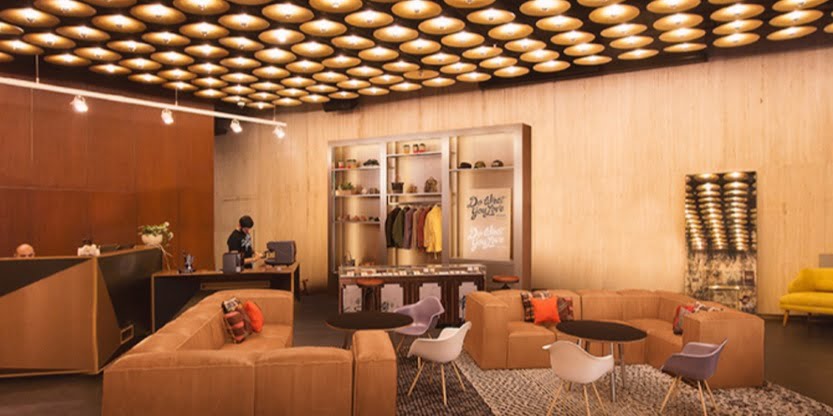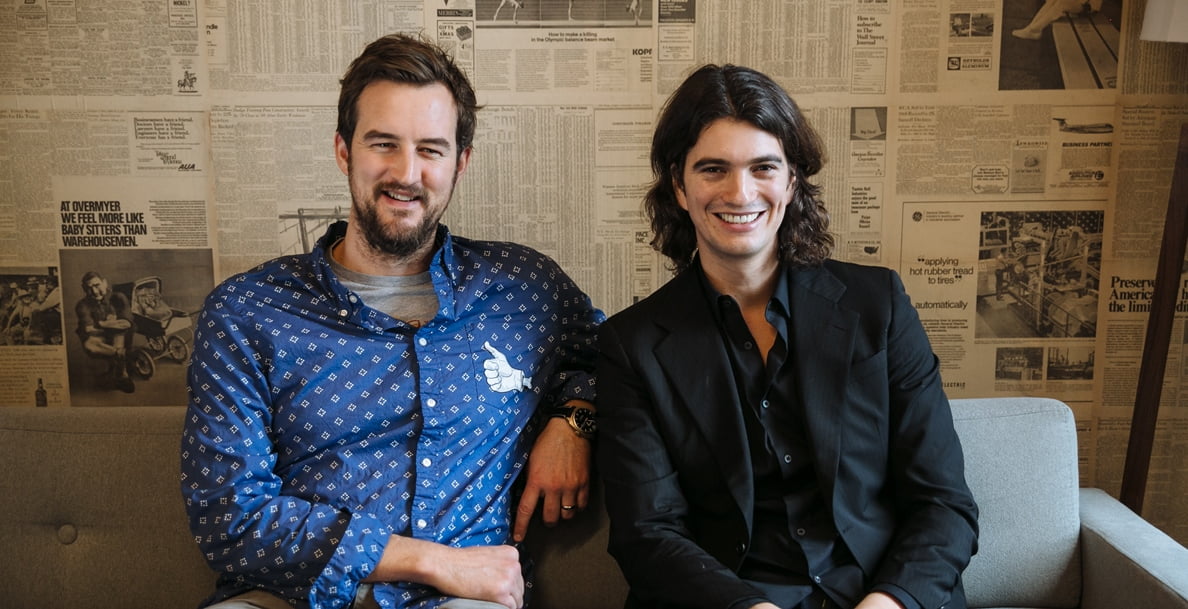Six years after founding shared office space startup WeWork, now worth $16 billion, Israeli entrepreneur Adam Neumann is launching WeLive, an urban co-living community. Neumann, who grew up on a kibbutz, and WeWork co-founder Miguel McKelvey recently opened two such residential buildings in New York City and in Arlington, Virginia, (near Washington, D.C.).
SEE ALSO: From Kibbutz To Empire: WeWork Building Global Startup Community
“Just as WeWork changed the way people work through its philosophy of shared space, services, community and social interaction, WeLive offers a disruptive alternative to the way people live,” according to a company statement.
Founded in 2010, WeWork is now the largest shared office space community in the world. With 40,000 members in 60 locations around the world (including Israel, the US, UK, Netherlands, and China), WeWork is home to hundreds of startups that share everything from business ideas to dining areas.
Early last year, it was reported that Neumann also plans to launch WeLive, presenting the concept of the collective community (the first kibbutz, an Israeli phenomenon, is now 107 years old) to the urban residential sector. Essentially, WeLive offers affordable housing of sorts, which might appeal to young people in sought-after, expensive cosmopolitan cities like New York and Tel Aviv.
WeLive challenges traditional living with flexible housing solutions, a dorm-style building, or an urban kibbutz, if you will, where members can share everything from beer to showers. This urban co-living enterprise is the brainchild of both Neumann and McKelvey, who also grew up in a commune-like environment. Implementing their WeWork model into a residential environment, they state that people should now have “more freedom and flexibility in how they live their lives.”
According to WeLive, “life is better when we are part of a community that believes in something larger than itself. From mailrooms and laundry rooms that double as bars and event spaces to communal kitchens, roof decks, and hot tubs, WeLive challenges traditional apartment living through physical spaces that foster meaningful relationships. Whether for a day, a week, a month, or a year, by joining WeLive – you’ll be psyched to be alive.”
SEE ALSO: Israeli Architect Eran Chen Is Transforming The Face Of New York
Sign up for our free weekly newsletter
SubscribeSome claim that WeLive feels like a hotel. There are no long-term leases, no credit checks and no broker fees. Each unit has a kitchen and a bathroom and is fully furnished with linens, towels, cable, wifi, and utilities, all of which are included in the monthly fee. In addition to private units, one can also rent a bed (much like a desk at WeWork) and share his or her living space with other WeLive inhabitants. And, there are unlimited coffee, beer and yoga classes for everyone!
Why would adults want to share their life with strangers? “Connecting with people in ways formerly unattainable in apartment buildings, this ‘We’ community is finding friendships and more with the people they now call neighbors. WeLive replicates the security and comfort of a suburban neighborhood but with the energy and vigor of a major city,” the company states.
Living in Manhattan for $1,375 a month
In the New York building, located on Wall Street, prices start at $1,375 a month per person in a two-bed, shared studio; studios in the same area of Manhattan rent for roughly $3,000, according to local real estate brokerage firm MNS. WeLive prices in the Arlington building, which is still in beta phase, are expected to be lower.
Neumann and McKelvey have stated that WeLive is an experiment whose results are expected to unfold in the coming months. But if this experiment proves to be as successful as WeWork – when the duo started renting out office space through Craigslist in 2008, they surely didn’t envision that by 2016 they would own a $16 billion empire – this urban kibbutz could prove that large metropolitan areas crave a sense of community.
Photos courtesy of WeWork/WeLive
Related posts

Rehabilitation Nation: Israeli Innovation On Road To Healing

Israeli High-Tech Sector 'Still Good' Despite Year Of War









Facebook comments